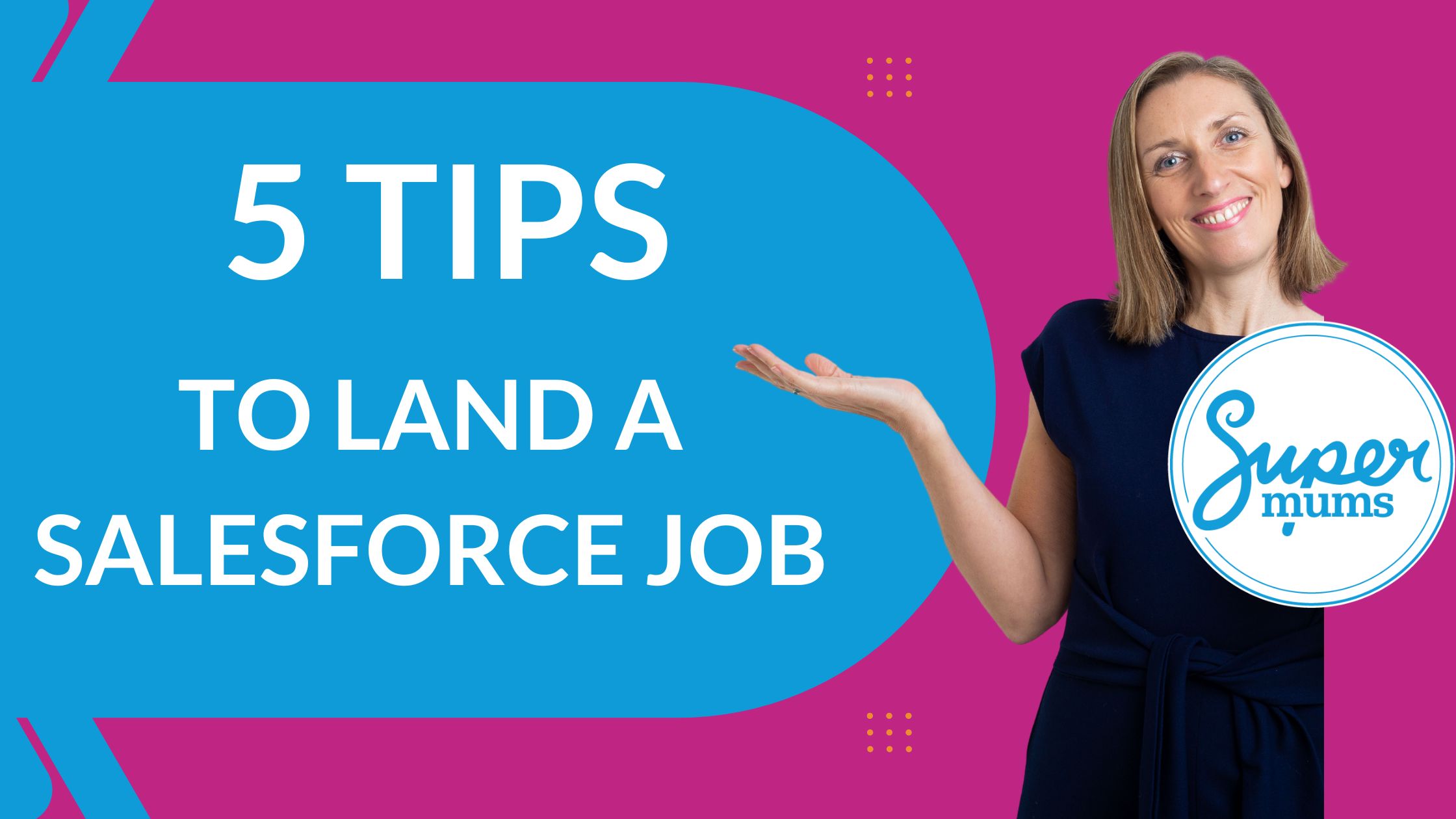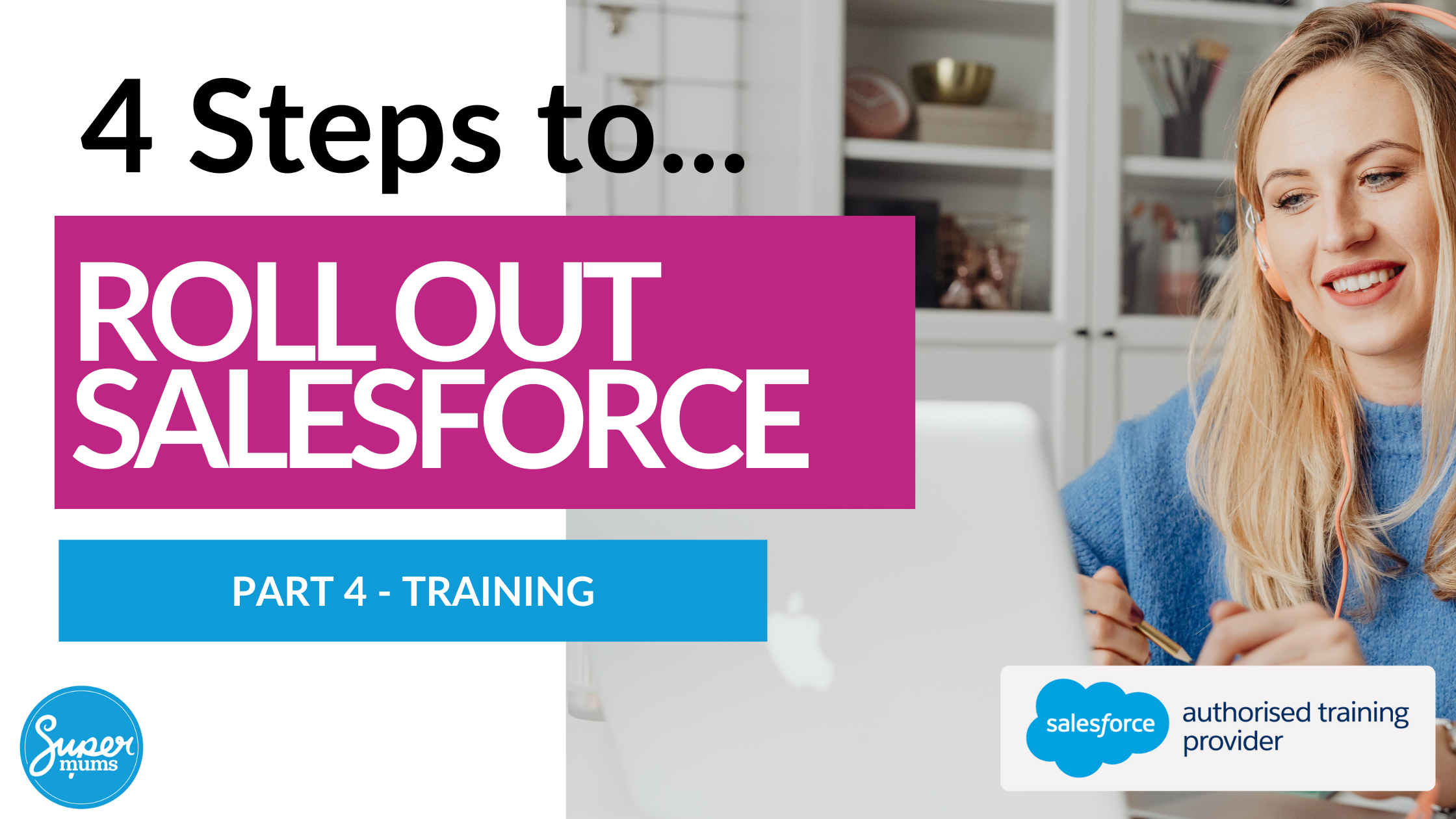Craft your career: from Admin to Consultant
By Abigail Julian

Heather Black, founder of Supermums spoke at a Salesforce careers event this week about what she has learnt as she has grown her own Salesforce Consultancy. Economic Change now employs 15 people who support non -profits to implement Salesforce. Here she shares her words of wisdom and some top tips from others in the Salesforce community.
So you’ve got your Admin cert?
You have the admin cert under the belt and you know how to technically build a system using clicks, but how do you design a system to meet the needs of a team? This is where consultancy skills start to come into play as you take on the role of a Doctor, Wizard and Teacher all in one go.
The key goals of a Salesforce Consultant are to diagnose the pain points of an organisation, come up with some wonderful solutions to fix them and train the team on how to make it all work.
If you find yourself as a sole admin working within a company you will probably need to develop these skills or you might work directly as a consultant advising a range of clients on how they can implement a solution. Sooner or later they are great skills to have in your toolbox.
Following my admin and advanced admin training in 2010, I went on a week’s consultancy course run by Salesforce. It was a fantastic foundation on how to approach the design of a solution and it’s the structure I still use today with customers.
As I started working with different customers I identified the need for a wider range of skills to be really confident in my profession and over the years I have invested in other courses on Business Analysis, Change Management and Agile Project Management. These complemented my coaching qualifications and Salesforce Certifications nicely and I feel I have a full grounding in the best practice approach to projects by learning from the experts.
Below I have provided a summary of the key skills I’d suggest you learn to develop your confidence and expertise as a salesforce consultant, along with some top tips from others in the eco-system.
Understand the products
The Admin certification is the foundation, but if your are consulting on key products you’ll need to understand the product in depth to help the client maximise its value. Whether it’s Trailhead, a Bootcamp or Academy courses, it’s worth investing the time to focus and learn the products.
Dig deep and ask the right questions
Otherwise known as ‘business analysis’ there are a range of qualifications you can take to master this vital skill covering everything from requirements gathering to process mapping. In short, you want to prepare and ask a series of questions about the organisation’s business strategy and culture, their reporting requirements, their customer journeys and internal processes, their current use of systems, strengthens and weaknesses, the security requirements and much more! It can also be helpful to prepare a common list of questions that you would need to think about in regards to the Salesforce products. The answers will inform your approach to change management, design and roll-out strategy for the system. Within my consultancy we have a developed a standard set of questions for the business, the different use cases and products so we are consistent in our approach and we make sure we haven’t missed anything that is vitally important to the build.
Communicate and engage users
The success of any system largely depends on adoption by the team. Engaging and exciting users about the future system is important throughout the design process and this is down to having a clear change management process. You want to understand and then communicate back to individuals and the company their motivations, pain points and benefits for using a new system and effectively elicit their requirements and recite back to them how the solution meets their needs. How to achieve this should be agreed with the client/employer to make sure it aligns with their culture and management style. Learning coaching skills and reading up on change management theories can be super interesting and useful to help you overcome any resistance or fear that could result in low adoption.
Create a clear plan of action
With lots of people involved in a CRM implementation, it’s important to have an agreed schedule for design, development, user testing and training that fits around people’s availability. An internal project manager is important for any implementation, to help co-ordinate things and to let people know what is expected of them, when and where. If you are working as an external consultant you will need to work alongside this internal representative to agree a plan of work and it can be useful to share a project plan to keep track of things. In the world of tech, Agile project management is the normal approach. There are various disciplines and qualifications that can support your learning.
Top tips from the ecosystem
Alongside these there core skill areas, I asked the Salesforce community for some other good tips and they kindly gave their views:
“Don’t feel like you need to know everything, be happy to say you will look into their query and get back to them.”
“Demonstrate that you care about the client’s business issue/processes and respect their point of view.”
“Don’t just push a one size fits all module/solution on them because it has worked for others. Listen.”
“I would say ability to understand the customer pain points, understanding the existing eco system and help them transform and transition for better!”
“It’s all about communication. You need it to build rapport, question effectively, state your solution, negotiate around differences, manage a team, train the solution and maintain relationships afterwards.”
“1. Understand the requirement completely before you start your Development 2. Do not think short term solution but design it for long term 3. Keep eye on latest features which Salesforce introduces and try to utilize.”
“Understand the business strategy for implementing #Salesforce”
“Build credibility by showing, building, creating, connecting and sharing.”
“My view point is 3 things: 1. Behaviour; communicate respectfully, show ambition to learn and develop, be consistent and demonstrate that through what you do vs what you say. 2. Work hard; when given the opportunity grab it and go that extra mile. 3. Quality; demonstrate your ability to continuously improve.”
Supermums is launching a consultancy course, sponsored by Dyson. Register your interest now and we’ll get in touch with more details soon
Recent Posts
Written By:
Subscribe To Our Weekly Top Tip Bulletin
Get Updates And Learn From The Best









